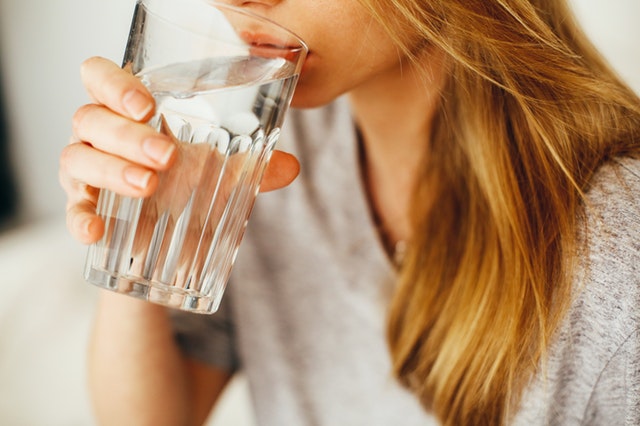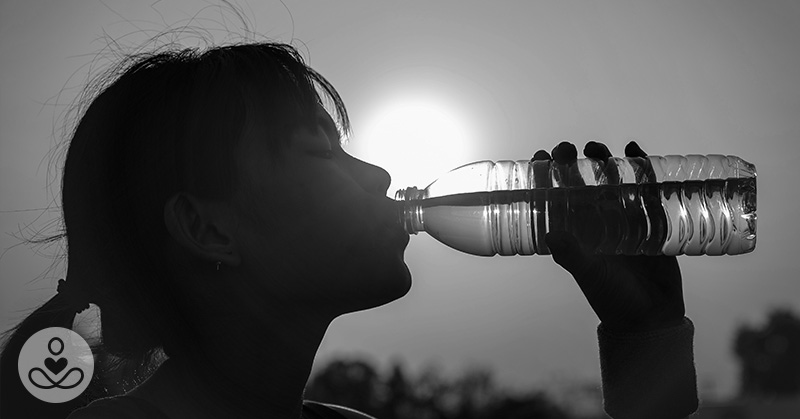Dehydration can assume many shapes and fatigue — from increased thirst, fatigue, dry mouth, and decreased urine output to yellowish urine, headaches, dry skin, and dizziness.
It also has many causes, including diabetes, an inability to drink, vomiting, diarrhea, and more. (1)
The solution? Water, right? Yes and no.
Overhydration: what the latest research has to say

Ask anyone and they’ll probably say the key to curing hydration is to make sure you’ve consumed enough water.
But David Nieman, a professor of public health at Appalachian State University and director of the Human Performance Lab, believes we should take that advice with caution.
“If you’re drinking water and then, within two hours, your urine output is really high and [your urine] is clear, that means the water is not staying in well.” (2)
Without having consumed a sufficient amount of food or nutrients, any water you drink can pass right through your digestive system.
Related: Young Man Invents “Water You Can Eat” to Help Dementia Patients Like His Grandma Stay Hydrated
Though rare, there have been some cases of overhydration that have led to hyponatremia — a low sodium concentration in the blood — which can lead to symptoms including nausea and vomiting, confusion, seizures, or lost consciousness.
Anyone who consumes huge quantities of water on an empty stomach has or will likely experience this. If fact, it’s what Nieman describes as having “no virtue.”
In the Mayo Clinic’s infographic describing what the color of urine means for your health, colorless pee means that “you’re drinking a lot of water. You may want to cut back.” (3)
His claim may seem counterintuitive, but there’s research to back it.
A study published in The American Journal of Clinical Nutrition investigated the effects of 13 different commonly consumed drinks on urine output and fluid balance when ingested in a euhydrated — that is, a normal state of body water content — state. (4)
Participants consumed beer, plain water, milk, tea, a special drink meant to rehydrate, and more. Interestingly, the researchers found that plain water was less hydrating than orange juice, milk, tea, and a few others.
So, how much water should I consume?

No, scientists are not suggesting you stop consuming water. What they are suggesting, however, is that people should “[ingest] water along with amino acids, fats and minerals” to absorb and retain sufficient levels of H2O.
According to Nieman, there are a few tips to stay optimally hydrated:
- Sipping water or other beverages — as opposed to consuming a lot at one time — helps prevent kidney overload, which allows your body to retain more water.
- Drinking water before or during snacks or meals containing fats, vitamins or minerals help your body absorb more water.
As Nieman says: “Water is good for you, but you can drown in it.”
In short, the sheer amount of water you consume isn’t the most important factor. It’s what you drink, and what you drink it with. If you’re watching your caloric and/or sugar intake, do you need to drink juice or milk to stay adequately hydrated like mentioned above? No, but its a good idea to consume quality water throughout the day, and that includes even sipping throughout your meals. Gulping it down all at once just isn’t efficient.
Read more: Nestlé Makes Billions Selling You Water That They Obtained for Nearly Nothing

